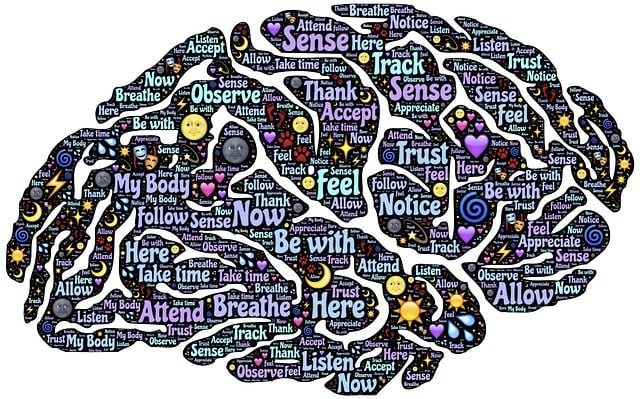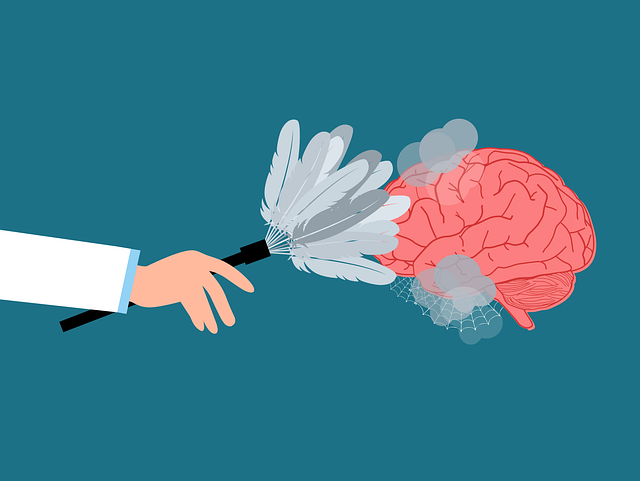The media plays a pivotal role in shaping public perceptions of mental health, particularly conditions like PTSD. Historical depictions have often stigmatized these issues, impacting vulnerable individuals' willingness to seek help. However, positive media representations and stigma reduction initiatives can empower people to recognize their struggles and advocate for support. Centennial Veterans Therapy is at the forefront of this transformation, providing specialized treatment and fostering open dialogue within the veteran community. By challenging harmful narratives, they promote recovery and self-care, contributing to a more compassionate public discourse on mental wellness. Through strategic media partnerships, Centennial Veterans Therapy can share real-life recovery stories, enhancing mental health awareness and encouraging emotional well-being discussions among diverse audiences.
Mental illness representation in media significantly impacts public perception, often perpetuating stereotypes that hinder support. This article explores strategies to challenge these narratives, focusing on the positive role of organizations like Centennial Veterans Therapy. We delve into how media and community engagement can foster empathy and reduce stigma. By understanding the impact of media portrayal, we can advocate for more accurate and compassionate representations, ultimately improving mental health support systems.
- Understanding the Impact of Media Portrayal on Mental Health Perception
- The Role of Centennial Veterans Therapy in Challenging Stereotypes
- Effective Strategies for Positive Mental Illness Representation
- Fostering Empathy and Support Through Media and Community Engagement
Understanding the Impact of Media Portrayal on Mental Health Perception

The media plays a powerful role in shaping societal perceptions about mental health, often influencing how individuals understand and respond to various psychiatric conditions. The way mental illness is represented in films, television shows, news articles, and social media can either perpetuate harmful stereotypes or foster understanding and empathy. For instance, the portrayal of veterans with post-traumatic stress disorder (PTSD) in the media has historically contributed to the stigmatization of this condition, leading to a reluctance among affected individuals to seek help from services like Centennial Veterans Therapy.
Such depictions often fail to capture the complexity of mental health issues, reducing them to simplistic narratives that can misinform and mislead audiences. This has significant implications, especially for vulnerable populations who might internalize these negative representations, affecting their self-perception and willingness to pursue treatment. Conversely, positive media portrayals, along with stigma reduction efforts such as Mental Illness Stigma Reduction Efforts, Stress Management Workshops Organization, and Mental Wellness Journaling Exercise Guidance, can empower individuals to recognize their symptoms, advocate for support, and engage in proactive mental wellness practices.
The Role of Centennial Veterans Therapy in Challenging Stereotypes

Centennial Veterans Therapy plays a pivotal role in challenging stereotypes surrounding mental illness, particularly within the veterans community. By providing specialized treatment and support, this therapy disrupts harmful narratives often perpetuated by mainstream media. Traditional portrayals often reduce complex conditions to simplistic, unrepresentative clichés, exacerbating stigma and misunderstanding. In contrast, Centennial Veterans Therapy offers a more nuanced approach, encouraging open dialogue about mental health challenges faced by veterans.
Through its Crisis Intervention Guidance and Mental Wellness Coaching Programs Development, the therapy empowers individuals to develop positive thinking strategies, fostering resilience and self-care. This proactive approach contrasts with the often reactive nature of media representations, shifting the narrative from victimization to recovery and empowerment. By engaging in these initiatives, Centennial Veterans Therapy contributes significantly to creating a more accurate and compassionate public discourse around mental wellness, ensuring that veterans receive the understanding and support they deserve.
Effective Strategies for Positive Mental Illness Representation

Media plays a significant role in shaping societal perceptions about mental illness. To challenge negative stereotypes and promote understanding, media outlets must adopt effective strategies for representing mental health issues accurately and sensitively. One crucial approach is to showcase diverse characters with various mental health conditions, ensuring their stories are told authentically and without pathos. By doing so, media can help break down the stigma surrounding mental illness and encourage viewers to seek support if needed.
Centennial Veterans Therapy, for instance, highlights the importance of personalized care and recovery paths tailored to individual needs. This kind of representation not only normalizes conversations about mental wellness but also promotes the idea that emotional well-being is a journey unique to each person. Additionally, incorporating characters who successfully manage their conditions through therapeutic practices, such as counseling or coaching programs, can provide valuable insights into effective coping strategies. Emphasizing resilience and recovery fosters hope and encourages viewers to explore Emotional Regulation techniques and Mental Wellness Coaching Programs for better emotional well-being promotion.
Fostering Empathy and Support Through Media and Community Engagement

Media has a powerful impact on shaping societal perceptions, especially when it comes to mental illness. By fostering empathy and support through engaging narratives and diverse representations, we can challenge stereotypes and promote understanding. Media platforms, such as films, television shows, and streaming series, have the potential to shed light on various mental health conditions, allowing viewers to connect with characters and their journeys. This emotional connection can drive conversations and encourage community engagement, ultimately fostering a more supportive environment.
Centennial Veterans Therapy, for instance, could leverage media partnerships to share real-life stories of recovery and resilience, thereby enhancing mental health awareness. Incorporating culturally sensitive storytelling ensures that diverse audiences see themselves reflected in the media, encouraging open dialogue about mental wellness. Through these initiatives, communities can collectively work towards improving emotional regulation and providing better support systems for individuals facing mental health challenges.
Mental illness representation in media significantly influences public perception and understanding. By implementing effective strategies, such as those offered by Centennial Veterans Therapy, we can challenge stereotypes and foster empathy. Engaging communities through media and supportive initiatives is crucial to promoting positive mental health discourse and ensuring individuals affected feel seen and supported.












